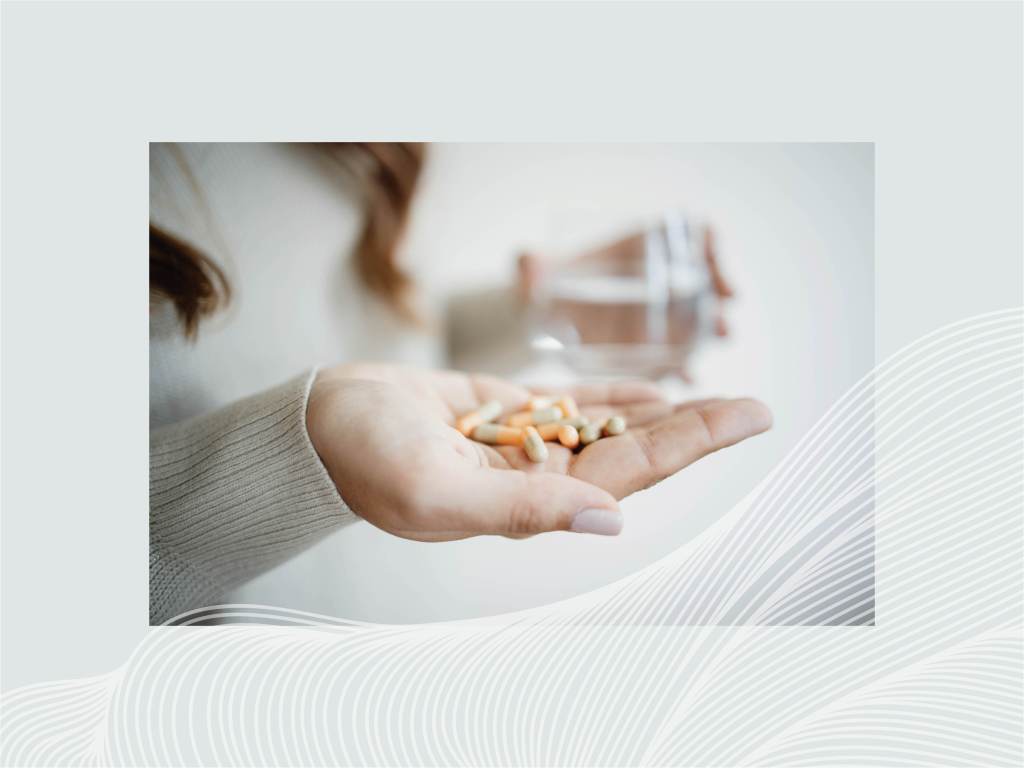Imagine going through menopause without actually dealing with menopause. Say goodbye to hot flashes, weight gain, and irritability. Painful intercourse is not a thing in your world. All you need is to take one or two pills a day.
If this sounds too good to be true, you’re right. There is no magic pill that can make menopause disappear. But with little options for menopausal care, women are vying for some form of control against these uncomfortable symptoms.
Several health companies are answering the call for help. Some fem-tech leaders are disrupting the menopause market with companies focused on undoing the stigma and inequality associated with menopause. Dietary supplement brands are claiming a major stake in this field as well. With more women searching for natural alternatives to pharmaceutical treatments, companies have seen a major boost in sales for herbal solutions. Financial experts forecast the menopause supplement industry to grow to 22.7 billion by 2028.
Now more than ever, there’s a growing movement to support women during and after menopause. Dietary supplements may be part of the answer but it all depends on whether they can back up their health claims. Phenology’s Daily Balance gummies, for example, uses genistein as its active ingredient which has been shown to reduce hot flashes in three different clinical trials. With little FDA oversight, it’s up to the consumer to investigate whether a supplement is good or all hype.
Phenology is a Flow sponsor, however, all products in this article were independently selected by our editors. Please note that if you purchase something by clicking on a link within this story, we may receive a small commission of the sale.
Related story
Momsessed: The Baby Sleep Site's Founder Nicole Johnson's Parenting Essentials Include a Throwback Book Series, Curl Serum, & an Unexpected Calendar App
One reason for the conflicting results across studies is that not all black cohosh act the same way. One of the chemicals made from the plant is vital for regulating temperature but “not all black cohosh plants express the gene-encoding enzyme required to make this phytochemical,” explains Yufang Lin, MD, an integrative medicine specialist, to the Cleveland Clinic.
Evening primrose oil
Evening primrose is a yellow flower commonly used by Native Americans to heal bruises, wounds, and swollen skin. For menopause, the true value is the oil in its seeds. The oil contains omega-6s that help with creating the building blocks for several molecules. There is some research suggesting evening primrose oil can help with menopausal night sweats as it stops the blood vessel activity that causes these symptoms.
The medicinal oil has also been explored for treatment of the increased irritability, anxiety, and low mood women in menopause feel. In an 8-week trial, researchers found evening primrose oil helpful in improving people’s psychological symptoms during menopause, though they warn a longer trial is needed to truly understand the oil’s effectiveness and safety. Indeed, the National Institute of Health warns “there’s not enough evidence to support the use of evening primrose oil for any health condition” including menopause symptoms. A review by the American Academy of Family Physicians, for example, found no benefit in taking the oil everyday for six months and decreasing hot flashes.
Soy
A popular ingredient to soothe menopause symptoms is soy. Soybeans contain chemicals that mimic estrogen and the idea is that it helps with hot flashes and night sweats because it helps to compensate for the low estrogen production. Research on the plant has had conflicting results. There have been studies noticing a modest improvement with hot flashes and the number of times it happens. Additionally, menopausal women seem to show lower blood pressure and a reduced risk for heart disease when regularly taking soy supplements. Meanwhile, other long-term trials have reported no change in menopausal symptoms or bone loss rate when taking soy supplements.
Valerian Root Extract
Valerian root has historically been used as a natural sleep aid because it acts like a sedative. The idea is that it raises the level of a brain chemical called GABA. Activation of GABA has a calming effect as it slows down neural activity, letting your mind relax enough to fall asleep. Since insomnia is a common complaint during menopause, valerian root can help someone sleep better.
The herb is also considered a phytoestrogen. Acting like estrogen, it is supposed to help restore balance to falling hormone levels. Taking a pill with a high dosage of valerian has helped lower the severity and frequency of hot flashes in menopausal women. According to the NIH, valerian is “generally safe for short-term use” in adults though how it affects the body with prolonged use is still questionable. They note that the studies between valerian root and menopausal symptoms are promising but there is little evidence to know for sure.
The FDA does not regulate drug supplements so a product can technically be sold without proof they work. As long as the product does not claim to “diagnose, mitigate, prevent, or cure diseases,” everything is fair game. Another thing to consider is whether the natural ingredients found in supplements contain the right dosage to work or are safe to consume.
“Supplements are unregulated and can cause serious health problems, like liver toxicity,” Pelin Batur, MD, a menopause specialist, told the Cleveland Clinic. “Just because something comes from a health food store doesn’t necessarily mean it’s safe.”
Hormone therapy remains the best way for relieving the range of symptoms you might encounter during menopause. As your ovaries produce less estrogen and progesterone during menopause, the treatment restores hormone levels with artificial hormones. It can be taken as a pill, patch, and as a topical medication.
There is limited research finding greater effects when people paired hormone therapy with dietary supplements.
Source: Read Full Article



